Your car’s air-conditioning system has one job—to keep you cool. But during a summer scorcher, it may seem like it’s barely up to the task. And even at those times, it’s eating up gas: The EPA estimates that using A/C in very hot conditions can reduce fuel economy by as much as 25 percent for a conventional vehicle. (It also zaps battery life in electrics and hybrids.)
Here’s why: Whenever you flip the switch, the system pulls in air from either the cabin or outdoors, extracts the heat and moisture from it, and pushes it out through vents. And the heart of this system is a compressor, which draws energy from the engine. So whenever you’re using the A/C, the engine has to work harder—and you burn more fuel.
But a few easy tips can help you save gas—and money—while making you feel cooler faster. Here’s what the pros recommend.
Park Smart
A car’s A/C system can only reduce the cabin temperature by approximately 40 degrees on average, says Jill Trotta, head of industry advocacy and sales for RepairPal. (Though of course, the longer you drive, the cooler the air will become.) If you park in a shady spot, the interior will start out cooler and the A/C will have less work to do. If the cabin is warm, roll down the windows and let the hot air escape before you rev up the A/C.
Set It To Recirculate
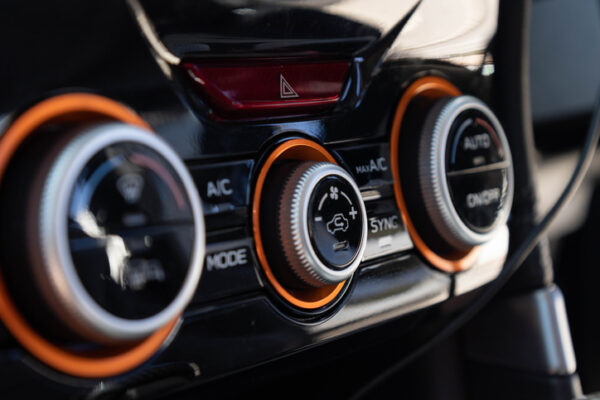 “Recirculation is probably the best way to maximize the A/C,” says Trotta. The benefit of recirculation is that the A/C system is pulling air only from within the cabin. So if it’s roasting outside but you already have the cabin down to a pleasant 72 degrees, the A/C will have to chill only that cooler air within the car. You’ll save on gas, too: Once the interior reaches the set temperature, the A/C compressor will turn off, reducing the load on the engine.
“Recirculation is probably the best way to maximize the A/C,” says Trotta. The benefit of recirculation is that the A/C system is pulling air only from within the cabin. So if it’s roasting outside but you already have the cabin down to a pleasant 72 degrees, the A/C will have to chill only that cooler air within the car. You’ll save on gas, too: Once the interior reaches the set temperature, the A/C compressor will turn off, reducing the load on the engine.
Skip Pre-Cooling
It may be more comfortable to cool your car before you’re underway, but running the A/C when the car’s not moving is highly inefficient. “Air conditioning will perform optimally when there’s airflow, like when you’re driving down the road,” says Timothy Hatcher, director of technical operations for the Automotive Maintenance & Repair Association. So wait until you’re already cruising before you turn it on. In an electric or hybrid, pre-cooling reduces the battery life, so either avoid the practice or stay plugged into the charger when you do it.
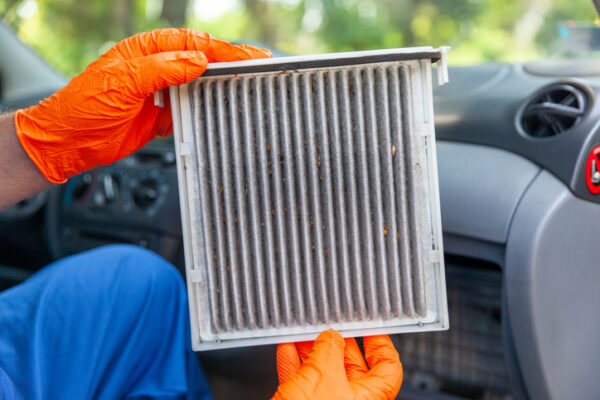 Change Your Cabin Air Filters On Schedule
Change Your Cabin Air Filters On Schedule
The cabin air filters remove dirt and dust from the air that comes out of the vents. When a filter gets dirty, it restricts the air trying to pass through, says Hatcher. So replace the cabin air filters according to the schedule in your owner’s manual, which is probably every year or two, or every 15,000–20,000 miles.
Don’t Ignore Leaks
The biggest misconception about A/C systems, says Hatcher, is that if they’re low on refrigerant, you just need to add more (a process called recharging). But the system is sealed; nothing should be going in or out. “Adding refrigerant isn’t normal, and it isn’t maintenance,” says Hatcher. “It’s an indication of some other issue.” If yours is low, visit a professional certified in air-conditioning maintenance and repair to check it out.
Another way to keep your cool (and peace of mind)? Download the GEICO Mobile app for help at your fingertips—from roadside assistance to help finding your car and more!
Read more: Check out these other smart ways to get better gas mileage.
By Julie Anne Russell

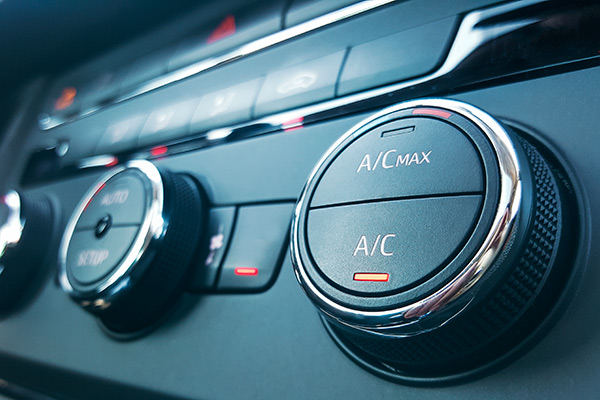


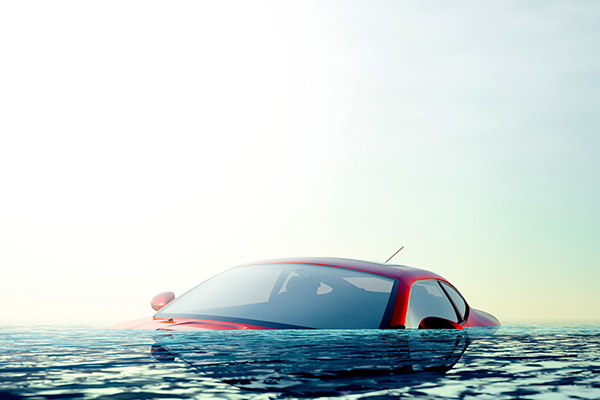
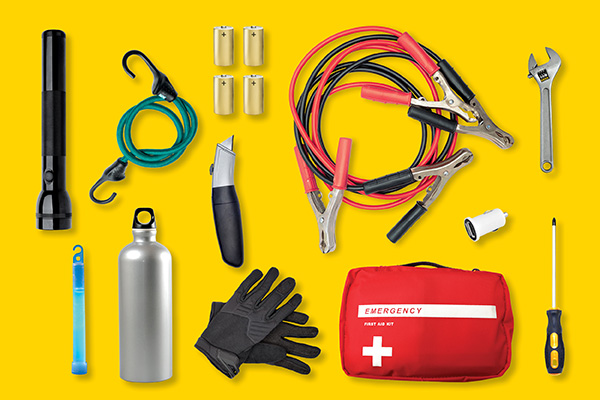
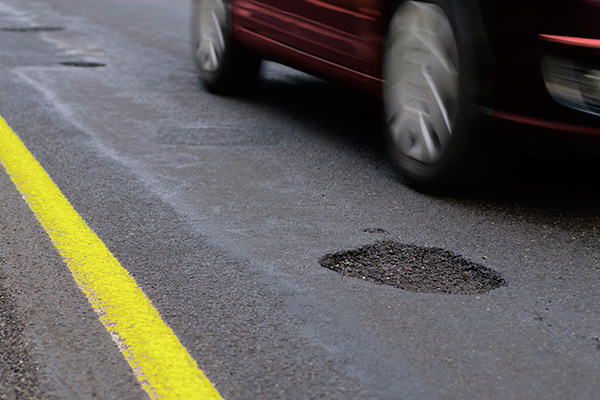

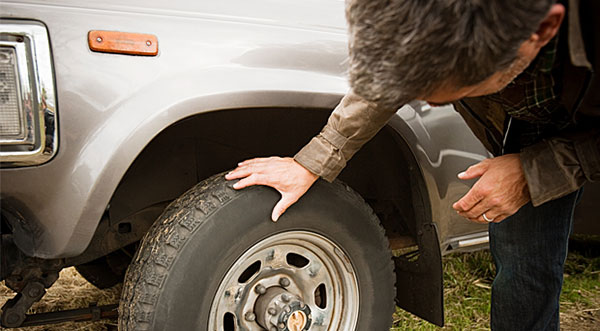
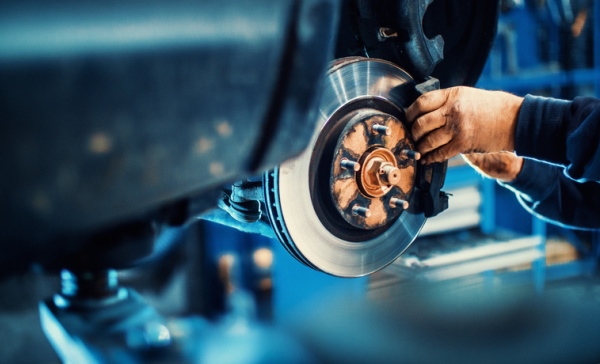
Dave Christensen says,
Nowhere does air conditioning mean cool! So how can the main job of the air-conditioner be too cool the car all air-conditioning means is condition the air so when you heat your car your conditioning the year when you cool the year your conditioning the air AC does not mean cool it means condition the air you put a good filter in your conditioning the air
Drucy Palao says,
Very helpful tips. Thank you
Charles Hodge says,
Thank you!! The information is very helpful.
IAN Abdul-Halim says,
Very helpful. Thank you
John Mayer says,
Good reminders, BUT, many friends are insistent on driving with their windows open to save gas, even though they are suffering in the heat. I agrue that all the windows open in the car while driving creates a bigger aerodynamic drag on the car that offsets the gas savings of having the AC off. Could you address that??
Matt Marx says,
Great article! I would also suggest not using your A/C too frequently unless you can’t avoid it. Like all mechanical components, the ones in your A/C have a finite lifespan. For instance, the more a compressor is used, the sooner it will need servicing. I look at it like an ATV or a boat, whose service schedules are measured on hours, not miles. So just like that, your A/C has a certain number of hours on it and limiting those hours will extend the life of your A/C.
Would you agree?
Dave Christensen says,
Nowhere does AC mean cool I’ll AC means is to condition the air so when you are heating the air your conditioning the air and when you cool the year your conditioning the air.
Matt Marx says,
What on earth are you trying to communicate?
Dan says,
No, AC means Air Cooler.
Heater means Heater.
Do not use a heater on a hot day.
Randy Fike says,
You need to keep using the AC every so often to keep it in good shape. Without use, the seals can start to dry out and allow the Freon to leak out. I would guess to use the AC for 10-15 minutes every two weeks or so. Even run it in the winter a few times (or use defrost which will also run the compressor)
Robert A. says,
Thank you!
s. p hogan says,
spritz the vents with some chilled water, and the air is now damp and cool and the cooling effect is magnified. i invented this with an older car with marginal a/c.
Garrett Grubbs says,
Thank you for the information about A/C it was helpful
MaryAnn says,
Those were excellent tips and I will be sure to keep my car well maintained for optimal performance during this exceptional hot summer.
Kent Sr. W Gain says,
I have a convertible & rarely us AC unless it’s raining. All of the suggestions are merely statements of the obvious & were not tremendously helpful, though 25% on the mileage is significant. I must save a lot.
Sunny Monnig says,
Thanks! This was very helpful!
Fay says,
Thanks for the info. I never knew I had to change a filter! Will check it out immediately. Thanks again
zonia del Portillo says,
enjoyed the tips. Thanks.
IRENE RHEIN says,
thanks for the info…….I do notice a change in sound when I put the A.C. on…. knowing now that it’s using more gas as we’re driving. i’m not familiar with those vents but hopefully when we have the car in for the regular checkup the attendant will know … @irene.